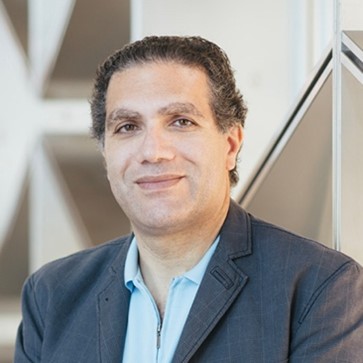
搜索网站、位置和人员

走进西湖
院系设置
开云app官网下载安卓
招生与奖励
新闻与活动
校园生活
开云体育登录入口网页版官网下载
人才招聘
师生入口
新闻与活动 活动信息
CenBRAIN Neurotech专题学术讲座 | Khaled Nabil Salam: Advancing Monitoring Capabilities: The Role of Wearable Sensors in Advancing Healthcare, Environmental, and Marine Studies
时间
2025年1月7日(周二)
10:30-12:00
地点
西湖大学云谷校区E10-205
主持
西湖大学工学院讲席教授 Mohamad Sawan
受众
全体师生
分类
学术与研究
CenBRAIN Neurotech专题学术讲座 | Khaled Nabil Salam: Advancing Monitoring Capabilities: The Role of Wearable Sensors in Advancing Healthcare, Environmental, and Marine Studies
时间:2025年1月7日(周二)10:30-12:00
Time: 10:30-12:00, Tuesday, January 7, 2025
地点:西湖大学云谷校区E10-205
Venue:E10-205, Yungu Campus
主持人: 西湖大学工学院讲席教授 Mohamad Sawan
Host: Mohamad Sawan, Chair Professor of School of Engineering, Westlake University
主讲嘉宾/Speaker:

Khaled Nabil Salam
阿卜杜拉国王科技大学(KAUST)教授
主讲人简介/Biography:
Professor Khaled Nabil Salama serves as a professor of electrical and computer engineering. He earned his bachelor's degree with honors from Cairo University in 1997 and later completed his master's and doctoral degrees at Stanford University in 2000 and 2005, respectively. His early academic career included a position as an assistant professor at Rensselaer Polytechnic Institute before joining KAUST in 2009, where he was the founding Electrical Engineering program chair until 2011. He was the director of KAUST sensors initiative between 2016-2021 which included 26 faculty and 7 international partners. Professor Salama's research is highly interdisciplinary, focusing on the development of devices, circuits, systems, and algorithms to facilitate inexpensive analytical platforms for environmental, and biomedical applications. He has made significant contributions to the field of low-power mixed-signal circuits for intelligent sensors and integrated biosensors. More recently, he has been involved in pioneering neuromorphic circuits aimed at emulating brain functions. His scholarly output includes over 400 papers and 48 patents.
讲座摘要/Abstract:
This seminar examines the transformative impact of wearable sensor technologies across healthcare, environmental monitoring, and marine biology. In healthcare, these sensors enable continuous monitoring for enhanced patient care and disease management. Environmental applications range from real-time pollution monitoring to ecosystem management, while in marine biology, wearable sensors facilitate non-invasive studies of aquatic life. The discussion will highlight technological advancements in sensor miniaturization and energy efficiency, emphasizing the critical role of interdisciplinary collaboration in optimizing wearable technologies for diverse applications.
讲座联系人/Contact:
Yitian(Claire) Zhang
Fangyuan(Tiffany) Tian

















